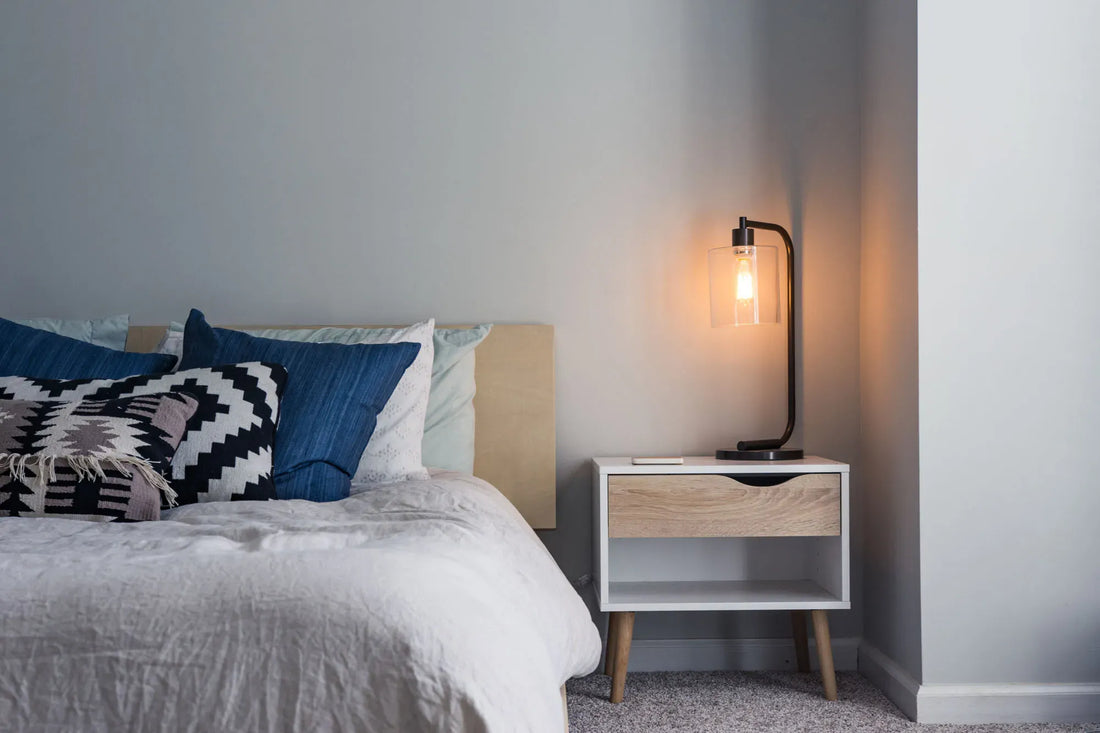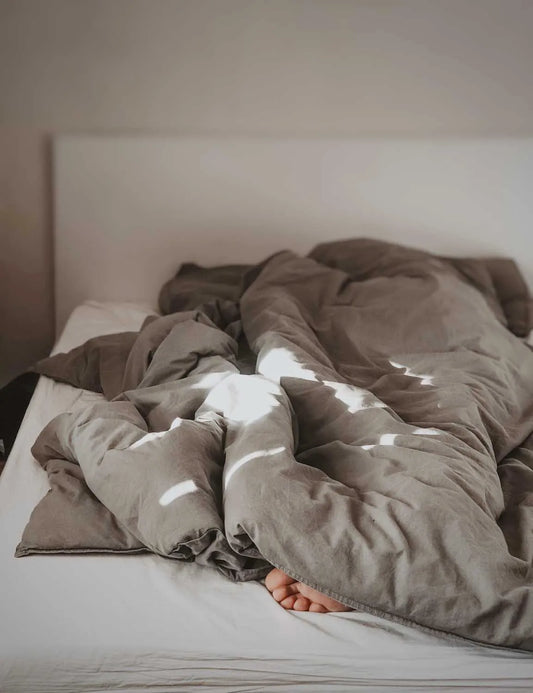| This article is for informational purposes only and is not intended as medical advice. Always consult your healthcare provider for guidance regarding sleep disorders and treatment options. |
Dive into the intriguing topic of sleep and allergies as we explore how to sleep better during allergy season. At Remly Sleep, we're dedicated to leveraging research for product development, and The Dream Lab is our way of sharing the knowledge we gain with you.
The Connection Between Sleep and Allergies
Allergies can significantly impact sleep quality, leading to nighttime awakenings and daytime fatigue. In this section, we will examine the relationship between sleep and allergies, and how allergies can affect your rest. Understanding this connection is crucial for ensuring a good night's sleep during allergy season.
Allergens Affecting Sleep
Common allergens, such as pollen, dust mites, and pet dander, can cause allergic reactions, which in turn can disrupt sleep. These allergens can irritate the nasal passages and cause inflammation, leading to congestion and difficulty breathing during sleep. When allergens trigger symptoms like sneezing, itching, and coughing, it becomes increasingly challenging to maintain uninterrupted sleep, resulting in poor sleep quality.
The Impact of Allergies on Sleep Quality
Sleep disturbances caused by allergies can result in insomnia, sleep apnea, and restless leg syndrome, affecting overall sleep quality and daytime functioning. In turn, sleep deprivation can negatively impact mental health and physical health, making it even more essential to address allergy-related sleep disruptions.
Tips for Sleeping Better During Allergy Season
To improve sleep quality during allergy season, it's crucial to minimize allergen exposure and manage allergy symptoms effectively. Here are some practical tips to help you sleep better during allergy season:
Keep Your Bedroom Allergen-Free
Minimizing allergens in your sleeping environment is essential for reducing allergy symptoms and improving sleep quality. Follow these steps to keep your bedroom allergen-free:
- Use hypoallergenic bedding to reduce allergen exposure.
- Wash your bedding regularly in hot water to kill dust mites.
- Use an air purifier with a HEPA filter to remove allergens from the air.
- Keep windows closed during pollen season to prevent pollen from entering your room.
- Vacuum your bedroom frequently, including carpets, rugs, and upholstered furniture.
Maintain a Consistent Sleep Schedule
A regular sleep schedule can help improve sleep quality during allergy season. Going to bed and waking up at the same time each day can help regulate your body's circadian rhythm, making it easier to fall asleep and stay asleep despite allergy symptoms. Consistency in your sleep schedule also supports your body's natural sleep-wake cycle, promoting a sense of overall well-being and alertness during the day.
Exercise Regularly
Regular exercise has been shown to improve sleep quality and reduce the severity of allergy symptoms. Moderate aerobic exercise, such as walking, swimming, or cycling, can help reduce nasal congestion and promote better sleep. However, it is important to exercise at the right time to avoid disrupting your sleep. Exercising too close to bedtime can stimulate your body, making it difficult to fall asleep. Aim to schedule your workouts at least a few hours before bedtime for optimal sleep benefits. Learn more about the connection between sleep and exercise here.
Monitor Your Diet
Your diet can play a significant role in the severity of your allergy symptoms and overall sleep quality. Certain foods can cause inflammation and exacerbate allergy symptoms, while others can help reduce inflammation and support better sleep. Consider incorporating more foods that enhance sleep quality into your diet, such as fatty fish, nuts, and cherries, which are rich in sleep-promoting nutrients. Avoid foods that may trigger allergy symptoms, such as processed foods and refined sugars.
Stay Hydrated
Staying well-hydrated is essential for overall health, and it can also help alleviate allergy symptoms. Drinking plenty of water can help thin mucus in your nasal passages, making it easier to breathe and sleep. Additionally, dehydration can lead to fatigue, making it even more difficult to get a good night's rest.
Consider Using Sleep Aids
If you're struggling to sleep due to allergy symptoms, consider using sleep aids to help improve your sleep quality. For example, you may benefit from using a Remly Sleep Mask to block out any irritating light, or blue light blocking glasses to reduce blue light exposure in the evening. These sleep aids can work in conjunction with other sleep hygiene practices to promote better sleep during allergy season.
Seek Professional Help if Necessary
If your allergy symptoms are severely impacting your sleep and quality of life, it may be time to seek professional help. A healthcare provider or allergist can help identify the specific allergens causing your symptoms and recommend appropriate treatment options. In some cases, immunotherapy or other treatments may be necessary to manage severe allergies effectively.
Final Thoughts
Allergies can be a significant hindrance to a good night's sleep, but with the right strategies in place, you can minimize their impact on your rest. By creating an allergen-free sleep environment, maintaining a consistent sleep schedule, practicing good sleep hygiene, and employing other sleep-promoting strategies, you can sleep better during allergy season and beyond.
At Remly Sleep, we are committed to sharing valuable insights on sleep and well-being, and incorporating the latest research into our innovative products. We hope that this exploration of sleep and allergies has been helpful for you. Remember, taking care of your sleep is an essential aspect of overall health, and by addressing your allergy symptoms, you can improve both your sleep quality and your daily life. Stay informed and take proactive steps to manage your allergies, so you can enjoy a better night's sleep during allergy season and all year round.




